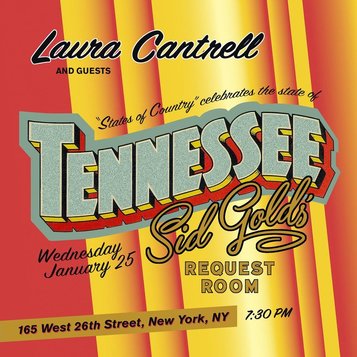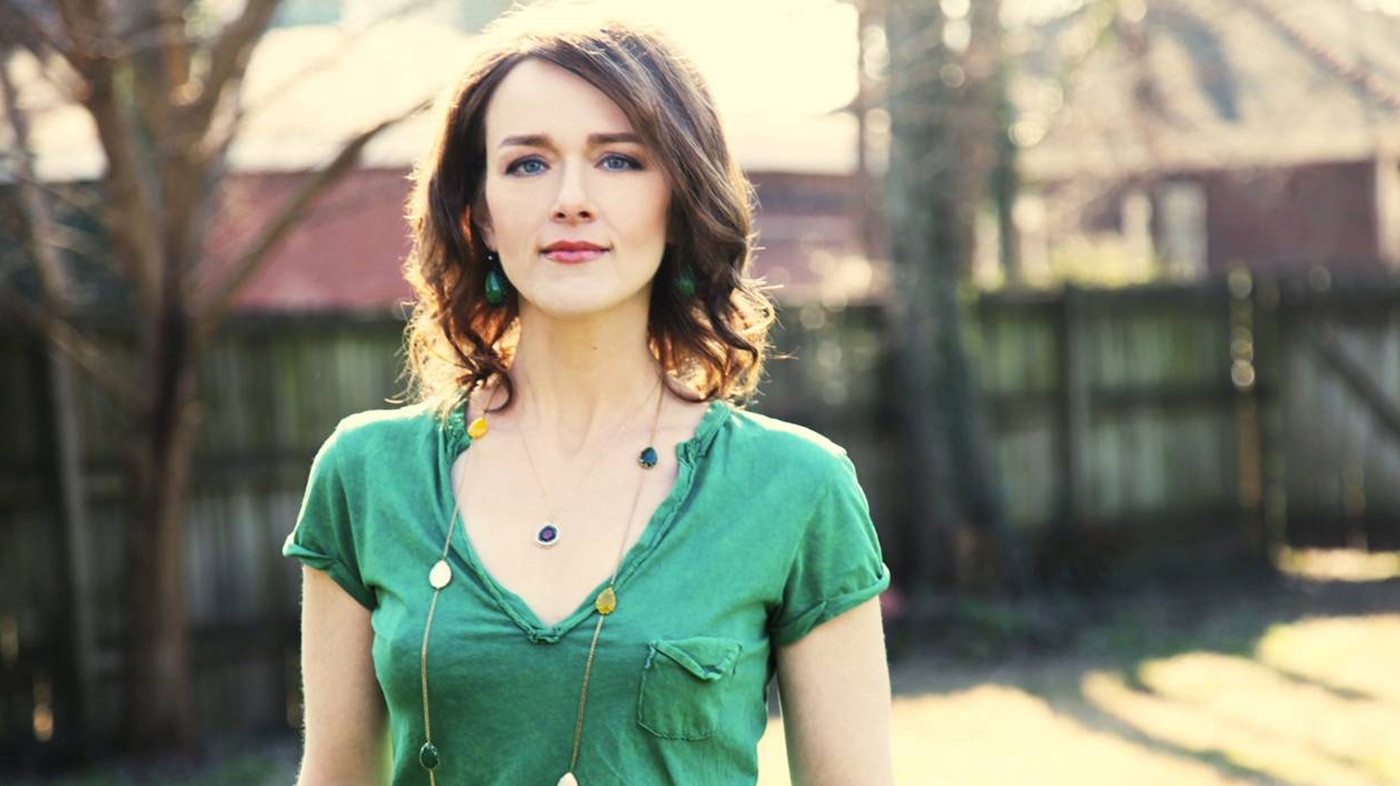|
Photo by Amy Dickerson Laura Cantrell keeps the musical flame of the past burning brightly, weaving together both the old and the new in an almost seamless groove, songs that are both timeless and timely. Whether paying tribute to her heroine Kitty Wells or penning her own uniquely vibrant tunes such as 'All the girls are complicated,' Laura's music and career are a shining example of what it means to put artistic integrity before all else. 'Not The Tremblin' Kind,' steadfast and soulfully searching, archivist and creator, Laura Cantrell is quite simply one of the best voices and advocates for country music today. AHC: What has this journey, this life in music been like for you, the highs and the lows, and what life lessons do you feel you've picked up along the way? Music was definitely a presence in my family growing up, something we derived pleasure from and shared with one another in different ways. Now I've spent many years pursuing music as a profession and am also raising a daughter who, at 10 years old, is obsessed with the Beatles and is learning an instrument. I feel like I'm at one point on a continuum of a music life and I'm looking at where she is, or sometimes looking forward to my parents who, in their 70s and 80s, are still great appreciators of music. I guess my takeaway is that music weaves into your life along the way, helping you express yourself as you grow, maturing with you, helping you remember as you age. It is one of the many non-material things that can make a life rich. AHC: What first drew you to music and what was your early musical environment like growing up? Were there pivotal songs for you then that just floored you the moment you heard them? My dad was of the Grand Ole Opry radio listening generation and we always had WSM on when he was in the house, in the morning or in the car on the way to school or doing errands. I remember clearly from about the 7th grade, sitting in the car while one of my parents was in Kroger; it was evening in the spring and dusk had just fallen. George Jones' "He Stopped Loving Her Today" came on the radio and it still feels today like I can remember every moment of that music, there in the car, George singing the story, the king of broken hearts. I think I was susceptible to records that pulled the heartstrings, but we also listened to all kinds of music in our house -- trad jazz, classic tin pan alley, show tunes, my mom is ten years younger than my dad so when she was listening on her own, the Joan Baez and folk rock records would come out. Nashville had its country punk moment and REM was just becoming nationally known when I was in high school, there were a lot of directions this could have gone for me. AHC: Your release Kitty Wells Dresses: Songs Of The Queen of Country Music, is described as a meditation on femininity in country music. Could you talk about Kitty's importance in country music as a whole and her impact on you? Kitty's importance to me comes from the juxtaposition between her personal conservatism and the groundbreaking career choices she made with her partner, artist and husband Johnnie Wright. Despite their relatively modest careers in country music and status as young people with family of three young children, they chose in the early 1950s, when Kitty had a surprise huge hit with the song "It Wasn't God Who Made Honky Tonk Angels," to pursue her career jointly, by writing more hit songs for her that would appeal to her newly attained audience of men and women stirred by "Honky Tonk Angels' frank refutation of the idea that wanton women being the cause of men's cheating. Despite advice from industry leaders against trying to make Kitty the headliner of a concert or an artist who would release full albums, she and Johnnie decided to approach her career just as they would have if it had been Johnnie who had the sudden career momentum. That doesn't seem like a radical idea today, but as of the early 1950s it hadn't been tried in country music. Within ten years, several female artists came forward who would top Kitty's success, but every one of them in some way based their opportunity on the foundation Kitty's career laid. The other reason I love her is her early songs and many recordings she made with Owen Bradley - Kitty's voice contained a lot of emotion, but her records have a certain restraint, holding some of the feeling in, not being showy but the emotion palpable. I think that simple quality is underrated in today's landscape of acrobatic, embellished singers. AHC: What were your all time favorite songs to play as host of The Radio Thrift Shop? That is an unfair question. There are a few records that struck emotional chords for me, the Hank Penny version of "September Song" for some reason, lots of Western Swing, the sounds of Washington Phillips "Lift Him Up That's All" or Sister Rosetta Tharpe's "Strange Things Happening Every Day," many more, Porter Waggoner's "Green Green Grass of Home," so many! AHC: From A Prairie Home Companion to Mountain Stage to the Grand Ole Opry, the UK and more, you've played with some of the biggest performers in Americana & folk music. Which gig or performance was the most transformative for you and which musicians throughout your career have you been the most ecstatic to have met? Opening for Elvis Costello was an amazing experience, as a performer, he's not messing around, and I learned a lot about how to present a professional show on tour with him. I still get tongue tied around Dolly Parton or Willie Nelson, some people you're just a fan no matter what you've done on your own professionally. I'm still pretty psyched to see and hear and sometimes speak to Lucinda Williams, she's just about the coolest. AHC: What are your thoughts on 'mainstream country music', as it is today? You've spent your life working with the classics, do you think we'll ever see a return to something similar to the musical landscape of the late 80's and early 90's, a sort of songwriters renaissance within popular culture? Hard to know. I do think, when you go back to early 90s country, there was a lot of great song craft that isn't part of what you hear on the radio now. Songwriting is changing, the rhythms of music change, and it isn't a bad thing. What is really interesting to me at the moment is watching artists like Jason Isbell and Sturgill Simpson and Margo Price emerge from current Nashville, or someone like Kacey Musgraves from Texas. These are all young writers with clear ideas about how their music should sound, they don't seem to be driven by chasing country radio, and are making interesting music on their own terms. AHC: Do you consider music to be a type of healing art, the perfect vehicle through which to translate a feeling, a state of rupture, hope lost and regained? Does the writing and creating of the song save you in the kinds of ways that it saves us, the listener? I think when you stumble upon something as a writer or singer that conveys a certain emotion, it is exciting in the same way it is to hear it and respond to it as a listener. It can be very satisfying to express yourself with words and melody, and I think people respond with a similar emotional satisfaction. AHC: Do you have any words of advice for other musicians and singer-songwriters or anyone who is struggling to create something of value out there, who are just starting out and trying to find their voice and their way in this world? What are the kinds of things that you've told yourself when you began to have doubts or were struggling with the creative process? Someone gave me some advice early on - "what you do every day matters" - which I took in a Malcolm Gladwell sense of "if I'm going to get credible at singing and performing, I need to get my hands on the guitar and sing every day." Even when I didn't have a gig, I took some time to make my noise and dream a few dreams that way. And eventually the voice in me that said "why would you ever get the chance to ....(fill in the blank ... like "be on the Grand Ole Opry"), gave way to another voice that said "why not?" Play a gig in England? Why not? Go on tour with Joan Baez? Why not? For me, clearing out the internal naysayer and making room for the possibility of something unknown has been part of the hardest work. You can't control where you're going to land, but if you have the faith to take the steps, plant the seeds, keep moving, even if it seems so slow that you have no momentum, it will yield something. Eventually your destination might start to take shape on the horizon, but a lot of the day to day work is done on the faith that continuing the work itself, writing the next song, booking the next gig, finishing recording etc, is worth doing. AHC: Do you have any new projects you'd like to mention? I'm starting a series of shows this year called "States of Country" at the lovely Sid Gold's Request Room in NYC. First one is on January 25 at 7:30 pm, celebrating the songs of Tennessee. We'll be doing one show a month, for the most part, through June of this year. I also have a collection of music out now called "Laura Cantrell at the BBC, Performances and Recordings 2000-2005." Visit www.lauracantrell.com/ 
For tickets to Laura Cantrell's "States of Country" this Wednesday (25th) visit www.brownpapertickets.com/event/2790720
Comments are closed.
|
AuthorWrite something about yourself. No need to be fancy, just an overview. Archives
April 2024
Categories |

 RSS Feed
RSS Feed
